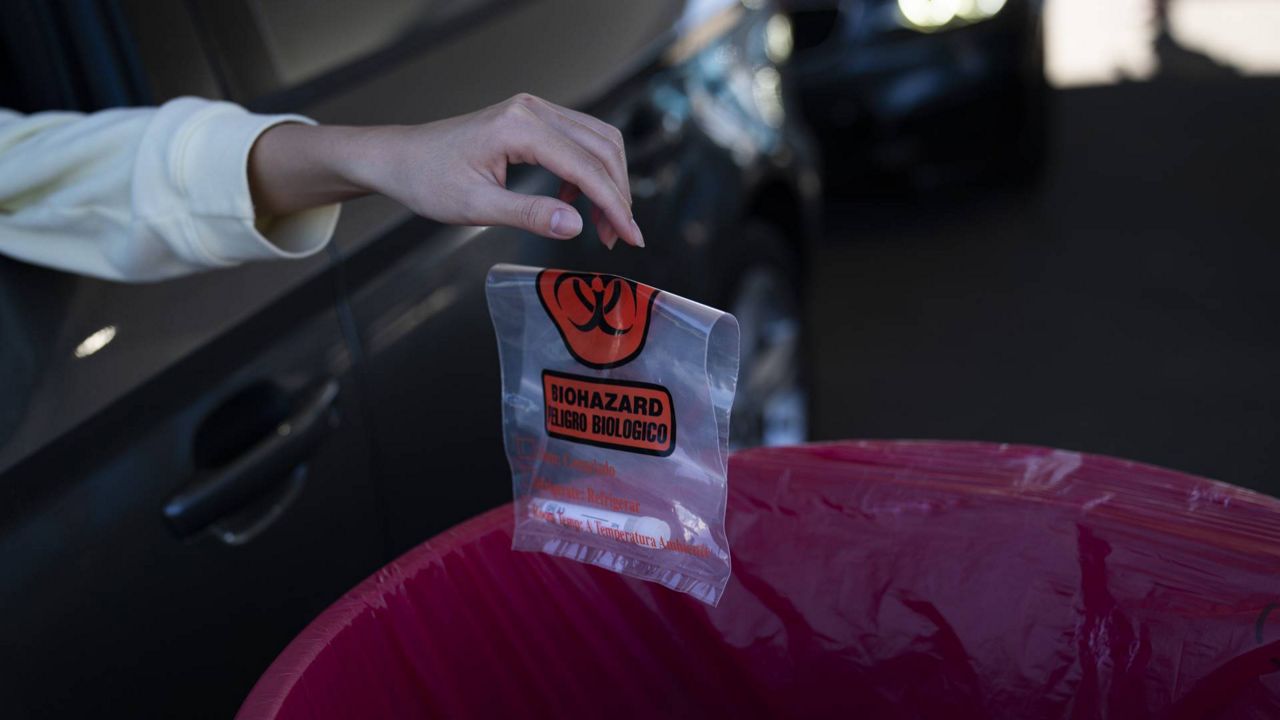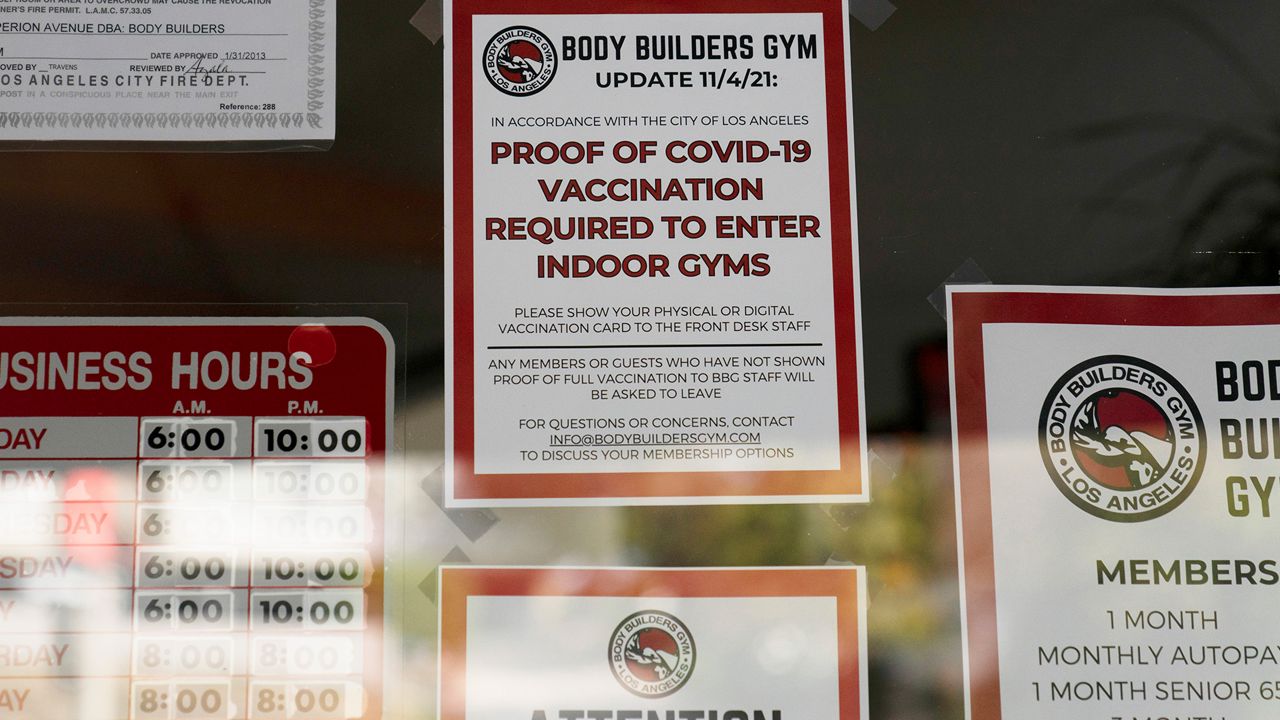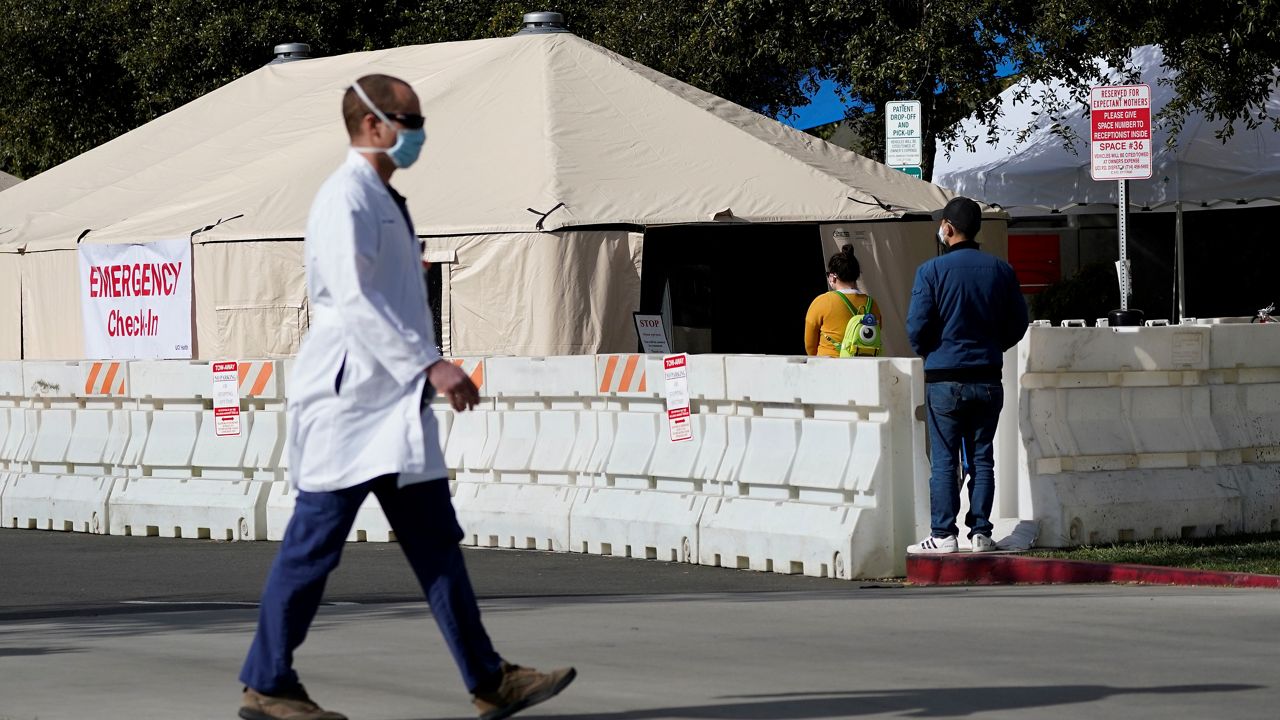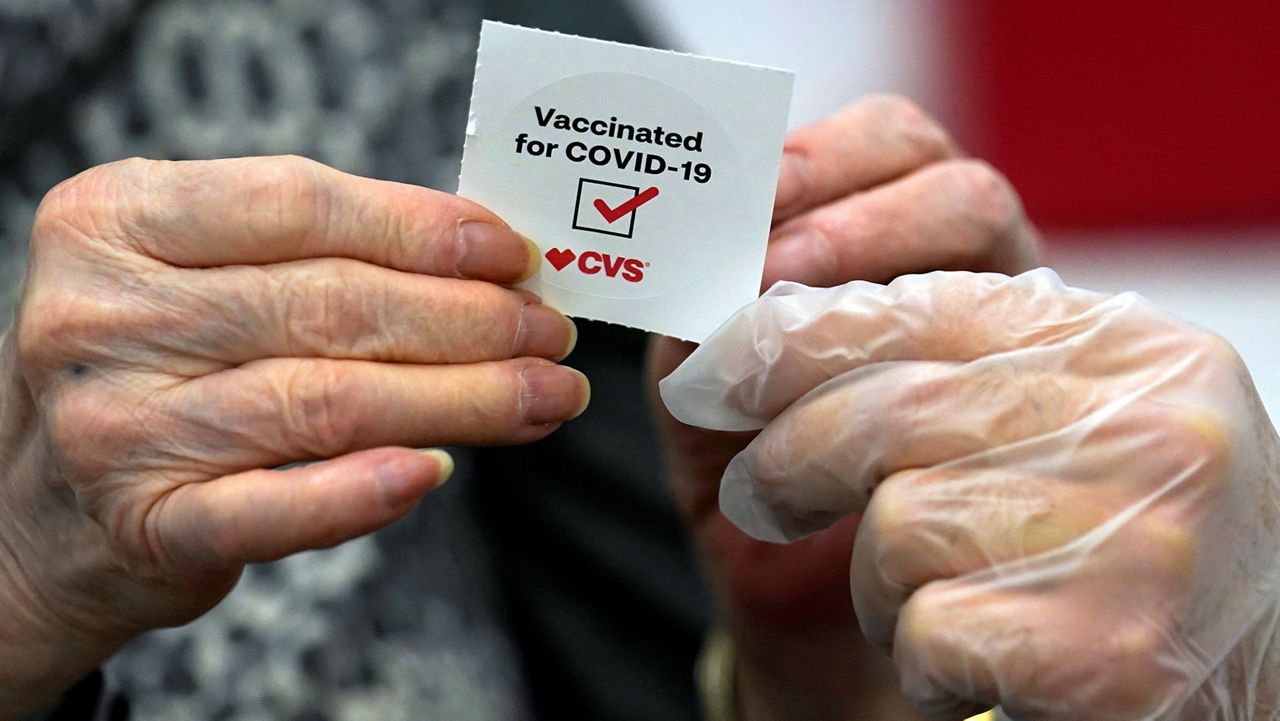SANTA ANA, Calif. (CNS) — Orange County Monday reported 734 new COVID-19 cases but no additional deaths, amid a continuing uptick in hospitalizations.
The county's cumulative case count stands at 78,553 and the death toll at 1,577.
What You Need To Know
- Orange County Monday reported 734 new COVID-19 cases but no additional deaths
- The number of county residents hospitalized with the virus inched up from 597 on Sunday to 605
- The mounting numbers over the holiday weekend seem to confirm officials' fears of a Thanksgiving-fueled surge
- Officials recommend waiting at least two days after traveling or attending an event or gathering to get tested
The number of county residents hospitalized with the virus inched up from 597 on Sunday to 605, with the number of patients in intensive care declining slightly from 148 to 146, according to the Orange County Health Care Agency.
The change in the three-day average of hospitalized patients went from 13.6% to 17%. The last time hospitalization rates were this high was the end of July, and the last time ICU rates were this high was around August 10.
The county has 26% of its intensive care unit beds and 62% of its ventilators available.
The mounting numbers over the holiday weekend seem to confirm officials' fears of a Thanksgiving-fueled surge.
"We got some terrible numbers" over the holiday weekend, Orange County CEO Frank Kim told City News Service on Monday.
Kim, who was infected with COVID-19 earlier this month, was well enough to return to work on Monday. He said he checked traffic online Sunday night and was concerned.
"Last night I looked at traffic on Google Maps and looked at the 5 Freeway around the Grapevine, the 10 around Palm Springs and the 5 Freeway toward San Diego and all the traffic was red, and I'm just concerned because it's clear a lot of people in Southern California went to Northern California and San Diego to visit friends and family and now they're on their way back, and I'm hoping they'll all come back and take a COVID test and that they're healthy, but there's certainly a lot of risk in the community because of all of the holiday gatherings."
Kim said he understands that "people want to maintain important holiday traditions, but there's a certain amount of risk to that behavior."
Kim said he "wouldn't be surprised in the state takes additional action" to restrict the congregating of people.
Orange County Supervisor Lisa Bartlett, who is president of the California State Association of Counties, said she and other county officials had a call with state officials Monday evening.
Orange County's hospitals appear to be in good shape to handle the surge, but there is concern there may not be enough staff for beds elsewhere, Bartlett said.
"You can have all the hospital beds you want, but if you don't have the staffing and personal protective equipment you can't really put patients in those hospital beds," Bartlett said.
"I think every county is doing an assessment right now, knowing if the numbers are spiking, if they get overwhelmed how many can we adequately staff."
Orange County "has been in a bit of a bubble ... where we have significant hospital bed capacity that can be staffed and we've got ventilators and PPE," Bartlett said.
"But other counties may not be in the same situation we're in and that concerns me."
Orange County's hospitals, as they did this summer, will have to take on patients from other more stressed hospital systems in the state, Bartlett said.
Bartlett said she went to South Coast Plaza in Costa Mesa on Black Friday and was "extremely impressed" with how store managers enforced social distancing and how much patrons adhered to the safety guidelines.
"Everyone was wearing face coverings," Bartlett said. "I felt relatively safe."
Officials recommend waiting at least two days after traveling or attending an event or gathering to get tested because the infection might not be detected right away.
Andrew Noymer, a UC Irvine associate professor of population health and disease prevention, said the recent election was responsible in part for the most recent surge and warned of a grim winter.
"I'm very apprehensive of the trends we're going to see after Thanksgiving," Noymer told City News Service last week. "People don't appreciate that we were recording deaths from the summer wave through October."
Noymer predicted more cases than the July peak. "But this is not just going to be like another July and go away," he said. "I think it's going to get worse.
He predicted that at the end of this week, "we'll be back to July [levels]. And will it crest like in July or keep getting worse. There's reasons to believe we could just keep getting worse."
Noymer said that's mainly because the colder weather is pushing people into more indoor activities and some students are still attending classes in classrooms.
The worst day for COVID-19 hospitalizations in Orange County was July 14, when there were 722 patients.
In the state's tiered monitoring system, which is updated on Tuesdays, the county's adjusted daily case rate per 100,000 residents jumped from 10.8 to 17.2 last week and the positivity rate swelled from 4.6% to 6.8%. As of Monday, the adjusted daily case rate per 100,000 stood at 18.7 with a positivity rate of 7.6%.
The positivity rate still barely fits in the red tier of the state's four-tier reopening roadmap, but the daily case rate per 100,000 is well past the 8% threshold for the most-restrictive purple tier.
Kim said he was optimistic vaccines are on the way and are scheduled to arrive by year's end. Hospital systems will get the vaccines directly and individual hospitals will receive doses from the county, Kim said.
Frontline health care workers will be among the first to receive vaccinations, along with people with underlying health conditions that make them especially vulnerable to the disease.
The hope is that increased testing and awareness of infections will encourage more quarantining and isolation and other social distancing practices that help curb the spread of the virus, Kim said.
The county's tests per 100,000 jumped from last week's 354.1 to 419.1, outstripping the county's goals for testing at this point, Kim said.
He said the county is focusing on encouraging testing. The number of tests conducted in the county was 1,452,198, including 7,015 reported Monday. There have been 59,783 documented recoveries.










